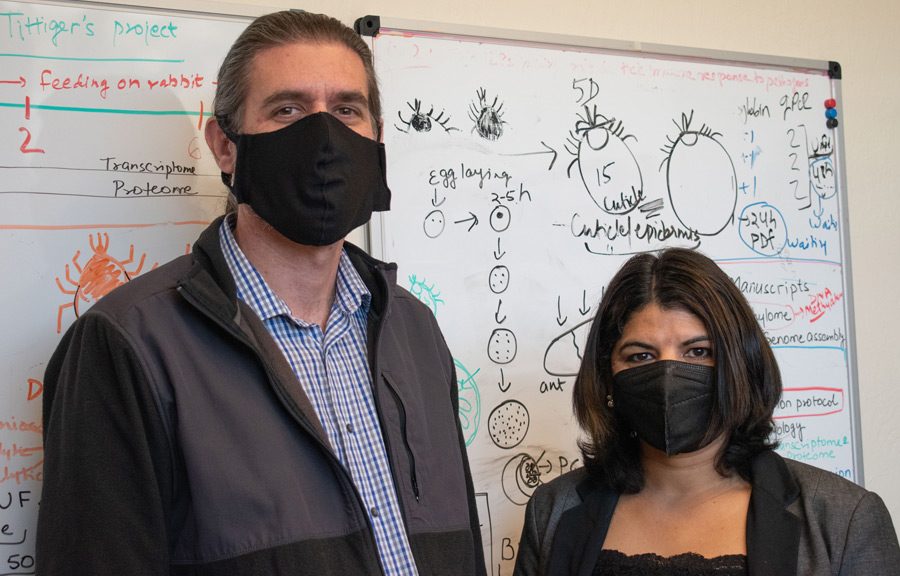
Gene-Editing Breakthrough Made in the Battle Against Tick-Borne Diseases
Ticks are more than an inconvenience. Dangerous and potentially fatal tick-borne diseases such as Lyme disease are on the rise in the United States, Canada and Europe, posing threats to anyone who works or recreates outdoors. A research collaboration led by Monika Gulia-Nuss, assistant professor in the Department of Biochemistry & Molecular Biology at the University of Nevada, Reno, has developed ground-breaking gene-editing for ticks that could mitigate this public health concern by decreasing the ability of ticks to be a vector for disease and pathogen transition.
The research team’s latest discovery, published in iScience Journal, is a new protocol that allows gene editing at the embryo stage in ticks, previously thought to be impossible.


